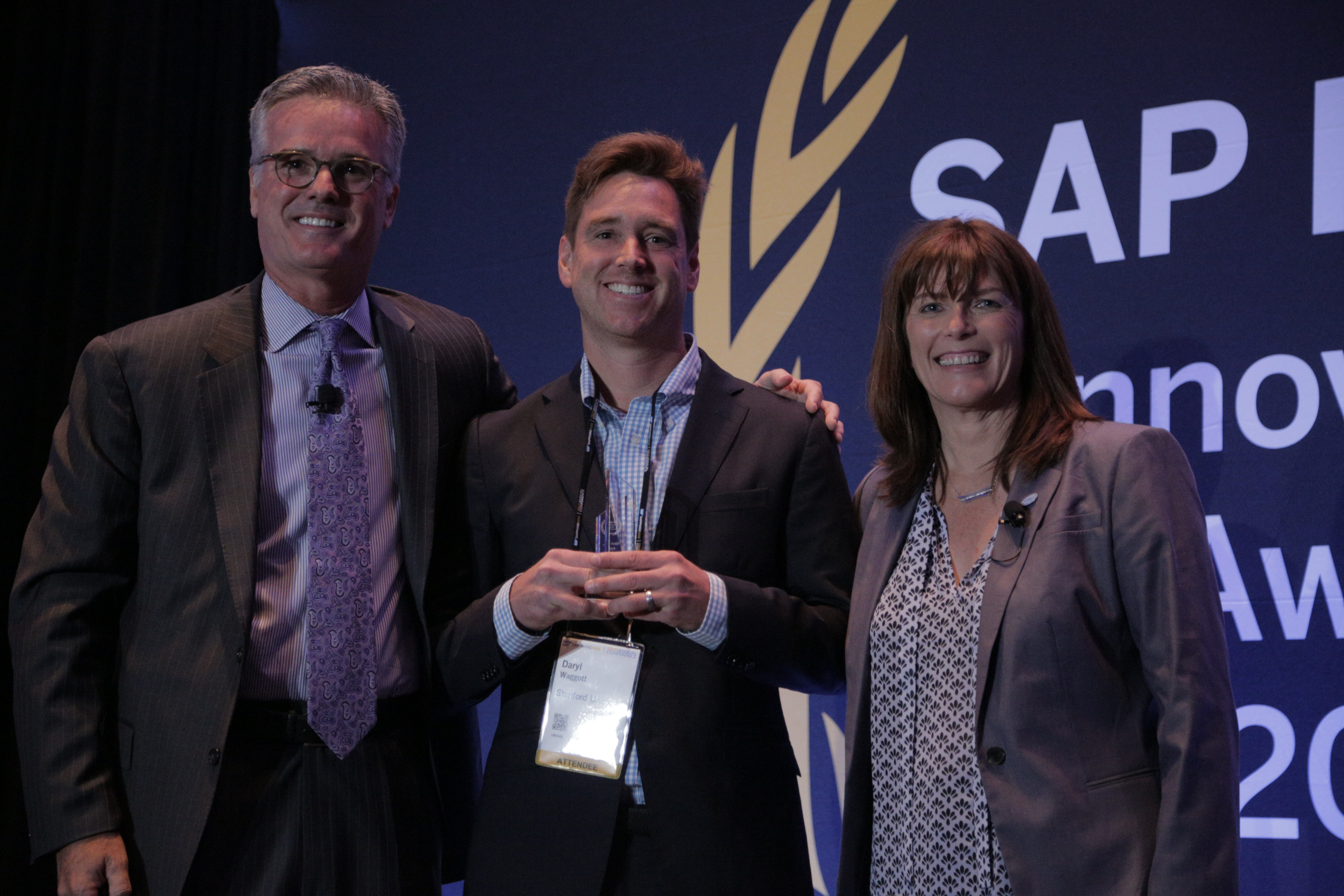Researchers at Stanford Medical Tap into Tech for Cardiovascular Care

Daryl Waggott, Data Scientist at Stanford University, accepting a SAP HANA Innovation Award on behalf of the researchers at Stanford Medical at SAPPHIRE NOW 2016.
Heart disease is the leading cause of death for men and women in the United States, and many health organizations are constantly conducting research on ways to improve treatment.
At SAPPHIRE NOW 2016, Carlos Bustamante, Professor of Genetics, Co-Founding Director of the Center for Computational, Evolutionary and Human Genomics (CEHG) and Inaugural Chair of the Biomedical Science Department at Stanford School of Medicine and Dr. Euan A Ashley, Associate Professor of Medicine and Genetics at Stanford School of Medicine explained their efforts in achieving a deeper understanding of the global human genome variation and its implications in disease, particularly cardiovascular health.
Over the past few years, Dr. Ashley and Dr. Bustamante have conducted research on the contribution of genetics, environmental exposures, behavior, and other factors as they relate to disease susceptibility.
More recently, they are working to make advancements in the study of genomes and are dedicated to unleashing the power of genetic sequencing.
Dedication to Cardiovascular Health
In this video interview, conducted and published by Gregg A. Masters, MPH at the SAP Personalized Medicine Symposium, Dr. Ashley discusses the advances that Stanford School of Medicine is making in cardiovascular health. Dr. Ashely also touches on the influence of wearable fitness trackers, the importance of prevention, and the excitement around precision medicine.
Dr. Ashley explains that the research conducted at Stanford School of Medicine has made great strides in cardiovascular health. The most immediate impact has been around rare, genetically inherited cardiovascular diseases. These are usually cardiovascular complications that can lead to sudden and unexpected deaths.
As stated in the interview, the technology that the researchers at Stanford have available allows them to move stunningly fast, truly transforming the way diseases are understood and treated.
Today, a single genome sequence can be completed in two days. Previously, the same analysis could have taken up to two months.
Soon, all 20,000 human genes will be able to be quickly analyzed, and even the six billion base pairs of patient genome data will be measurable.
Taking Control of Cardiovascular Health
To summarize a very important point Dr. Ashely presents during the interview, diet and exercise will always positively influence heart health. Yet, lifestyle intervention through the use of technology is greatly helping to promote health and prevent disease.
As Dr. Ashley states, "The goal of a health system is to reach the patient before they are even a patient."
To read the Stanford researchers SAP HANA Innovation Award story about their winning Next Generation App, click here.
Follow me on Twitter @Cmdonato
This story was originally posted to SAP Business Trends.